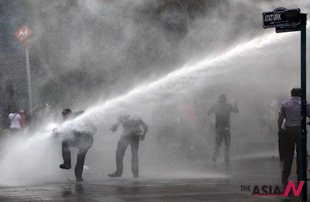
An Irish scholar characterized Jeong Yak-yong (1762-1836), a Korean philosopher and prolific writer often referred to by his pen name Dasan here, as a secret Catholic because he could not speak about his Christian beliefs in public.
“In no uncertain terms, Dasan lived during a period of religious terror,” Kevin Cawley, a Korean Studies professor at University College Cork in Ireland, wrote in an email interview with The Korea Times, Monday.
“His cousin refused to perform the traditional Korean memorial rite when his mother died, and instead performed Catholic rites and as a result he was beheaded. This brutal event forced many to withdraw from the church, at least publicly.”
Dasan was later praised as one of the great scholars of his time. But his life was far from easy because he was exiled to the southernmost city of Gangjin, South Jeolla Province in 1801 for 18 years. His links with the Catholic religion, which was banned at that time, caused him to live in isolation for nearly two decades.
During his exile, he produced numerous writings on tough issues in all areas. He revealed curios and knowledgeable interpretations of several academic fields, including philosophy, medical science, engineering and history. His vast writings earned him the nickname “walking dictionary.”
Cawley said Dasan was one of the unfortunate scholars of his time because he had to deny his religious beliefs in public for life.
“He had been a hidden Catholic, attending Catholic ceremonies in secret and loaning Italian Jesuit missionary Matatteo Ricci’s book in secret to others in the hope of converting them,” he wrote.
The scholar said Dasan was one of the Koreans influenced by the Italian missionary who is the author of “The True Meaning of the Lord of Heaven.”
Over the past year, Cawley has taught Korean language programs and a course on the religious traditions of Korea and Korean History at the university. He is the first and only scholar teaching such studies in Ireland.
He called last year “very successful.”
“My students were really engaged with the texts we read in translation and in particular, they found Dasan to be a true person,” he said.
“These students were from a philosophy background, not focused on Korean Studies and so they engaged with Dasan’s ideas from an intellectual point of view. Hence they were free of preconceived ideas about Dasan whose ideas are usually overshadowed by an association with “Sirhak” (practical learning).”
Cawley will visit Seoul in July for a conference on Dasan hosted by the Dasan Cultural Foundation. This year marks the 250th anniversary of Dasan’s birth. <The Korea Times/Kang Hyun-kyung>




